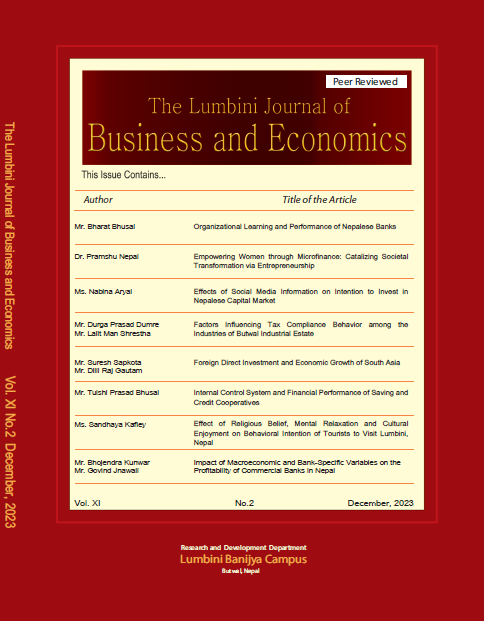Effect of Religious Belief, Mental Relaxation and Cultural Enjoyment on Behavioral Intention of Tourists to Visit Lumbini, Nepal
DOI:
https://doi.org/10.3126/ljbe.v11i2.64723Keywords:
Religious Tourism, Behavioral Intention, Tourist Motivation, Religious Belief, Mental Relaxation and LumbiniAbstract
The purpose of the study is to assess the effect of religious beliefs, cultural enjoyment, and mental relaxation on the behavioral intention of religious tourists in Lumbini. Data for the study were collected from three hundred and eighty-four respondents in Lumbini, comprising both domestic and international religious tourists. The Ordinary Least Squares Method (OLS) was adopted to analyze the collected data. Similarly, Karl Pearson’s coefficient of correlation technique was used to measure the correlation between religious belief, cultural enjoyment, mental relaxation, and behavioral intention. The correlation results show a moderate level of relation between the variables. The findings of the study reveal a significant effect of religious belief, cultural enjoyment, and mental relaxation on the behavioral intention of religious tourists at Lumbini. Religious beliefs have a higher influence on the behavior of the tourists than the other two variables.




